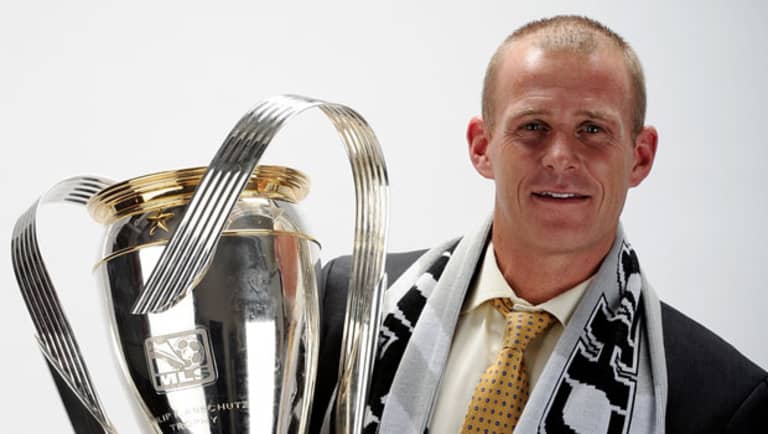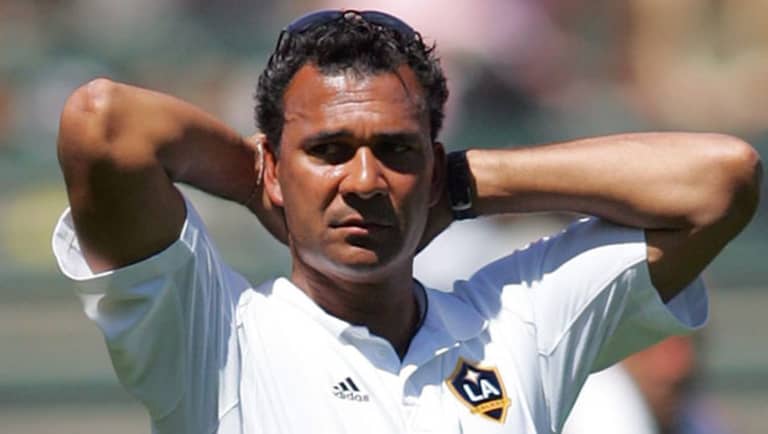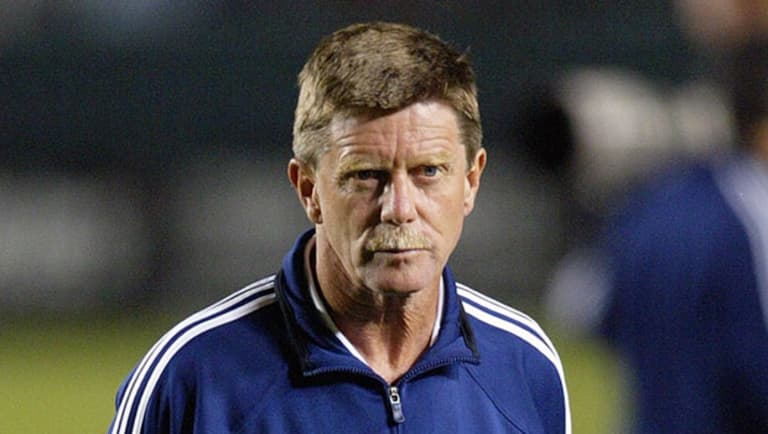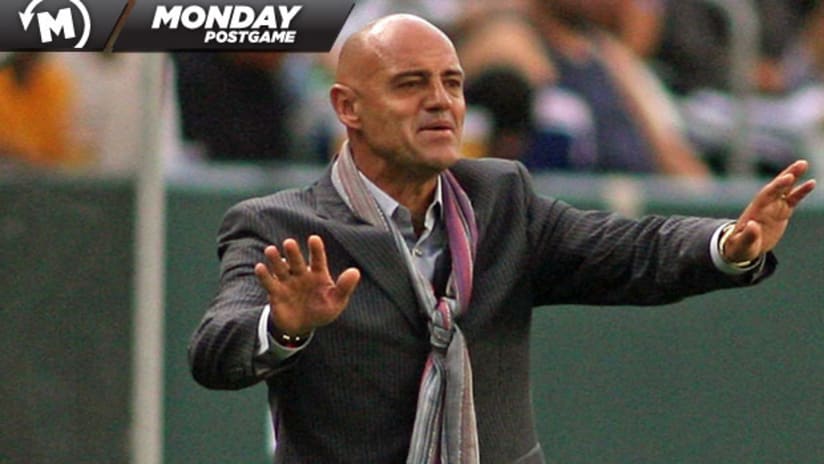The trade winds blew in at gale force this week, as teams from Portland to New York and points in between continued to adjust their rosters for 2013.
The Red Bulls parted ways with the questionable attitude and booming salary of Designated Player Rafa Márquez. Portland traded for striker Ryan Johnson and goalkeeper Milos Kocic from Toronto FC, while reportedly lining up a bid for 22-year-old US international midfielder Mix Diskerud.
Sporting Kansas City re-signed 2012 Defender of the Year Matt Besler, and landed 2010 World Cup veteran midfielder Benny Feilhaber in a trade with New England.
The Re-Entry Draft concluded, with 14 players going in Stage 2, including three with US national-team experience in defender Danny Califf (to Toronto), striker Conor Casey (to Philadelphia) and midfielder John Thorrington (to D.C. United).
Reigning champions LA were busy as well, nabbing former Houston winger Colin Clark (at No. 2) and quality ex-Columbus keeper Will Hesmer (at 21) in the Re-Entry Draft, while trading striker Edson Buddle to Colorado for allocation money and a first-round pick in January’s Supplemental Draft.
Across the hall in the Home Depot Center, the Galaxy’s lower-profile co-tenants, Chivas USA, also made a splashy move this week, but it looked like much more of a gamble than LA’s savvy transactions.
The Goats hired outspoken former Puebla coach José Luis Sánchez Solá, popularly known as “ El Chelís,” as the eighth coach in franchise history.
To right the ship for a team that went 7-18-9 this past season and hasn’t been to the playoffs since 2009, Chivas turned to a man who speaks very little English, has never coached in MLS and who told MediaTiempo.com recently, “I believe that in MLS, almost all the teams play the same. I don't have the sensibility to do what they do over there.”
That sounds a lot like a man bowing out of a job offer, yet … here he is. Chelís is also prone to sideline outbursts, controversial postgame comments and clashes with his bosses.
Apart from all that, however, there’s this: Managers without a lot (or any) of coaching experience in the United States have a woeful track record in this league. Fourteen of the 17 MLS champions to date were coached by men from the US or Canada, and of the other three, two (Peter Nowak, 2004; Thomas Rongen, 1998) came with extensive experience in North America. Nowak played five seasons in MLS and won a title with Chicago in 1998. Rongen played pro ball in the US from 1979 to ’93 and has been coaching here ever since.
That leaves Gary Smith as the only foreign-born-and-reared coach ever to lead an MLS team to a title, which he did with the Colorado Rapids in 2010.
That’s not to say it can’t be done; that’s simply to say that in 17 years, among dozens of coaches, it’s been done … once.
Here’s a look at some of the more memorable coaching transplants and how they’ve fared in MLS. Where will Chelís land?
The Good
Gary Smith (Colorado, 2008-11) -
Hard-nosed Englishman led the Rapids from back in the pack (they finished fifth in the West, with a 12-8-10 regular-season record) to a 2-1 win over FC Dallas in MLS Cup 2010. Overall record: 47-30-35.

Despite his results,
Smith (right) was dismissed
after a clash with management in 2011.
Hans Backe (New York, 2009-12) - Many fans will argue — possibly loudly — that he underachieved in New York, but Backe engineered a worst-to-first turnaround in his inaugural season, leading the Red Bulls to the best record in the East in 2009, and he took New York to the playoffs every year he was in charge. He was let go after the 2012 season.
Juan Carlos Osorio (Chicago, New York, 2007-09) - Took over a last-place Chicago side and led them to the playoffs and the Eastern Conference Championship in 2007. Had mixed results in New York (to put it mildly), but guided the team to its first and only MLS Cup final, in 2008. Departed both clubs under less-than-ideal circumstances.
Octavio Zambrano (LA Galaxy, New York, 1997-2002) - Led LA to the final of the CONCACAF Champions' Cup in 1997 and to the MLS Supporters’ Shield in 1998, when the club went 24-8 and scored a record 87 goals. Helped New York to their first division title, when the team went 17-12-3.
The Bad
Walter Zenga (New England, 1998-99)
- A household name in Italy, where he was the
Azzurri
’s first-choice goalkeeper from 1987 to ’95, Zenga was pure butterfingers as an MLS coach. His 1999 team went 12-20 with a minus-17 goal

difference. Amazingly, Zenga has coached 10 teams since then, and currently heads up UAE side Al-Nasr.
Ruud Gullit (LA Galaxy, 2008) - Thanks to the Dutch legend, the term “sexy football” is a punch line in US soccer circles. The Euro 1988 champion (right) signed a big contract to coach David Beckham and the Galaxy, promising to instill an, um, NC-17 style of play. But he quickly proved too sexy for the Galaxy shirt, resigning after a seven-match winless streak.
The Ugly
Aron Winter (Toronto FC, 2011-12) - Toronto won just six games in Winter’s first season on the job and missed the playoffs for the fifth straight year. Things went off the rails the following year, as TFC went 0-9-0 to start the season, the worst opening in MLS history.

Bora Milutinovic (New York, 1998-99) -
The inscrutable, globe-trotting Serb worked wonders with the 1994 US national team, but had no such magic touch with the MetroStars in ’99, driving the team into a 7-25 ditch, including a record 12-game losing streak.
Hans Westerhof (Chivas USA, 2005) - If you’re a Chivas USA fan and you don’t remember this guy (right), that’s probably because you’ve blocked out the experience. Westerhof, who coached Chivas de Guadalajara in 2004, took over Chivas USA after the expansion club got off to a miserable start under Rongen in 2005. He didn’t help, piloting the club on a 3-13-4 skein before being replaced by Bob Bradley.
Chelís recently told FútbolPicante that the “English language doesn’t have enough verbs for what I do and what I say.” But truthfully, he’ll need just a single, three-letter English verb: win.














